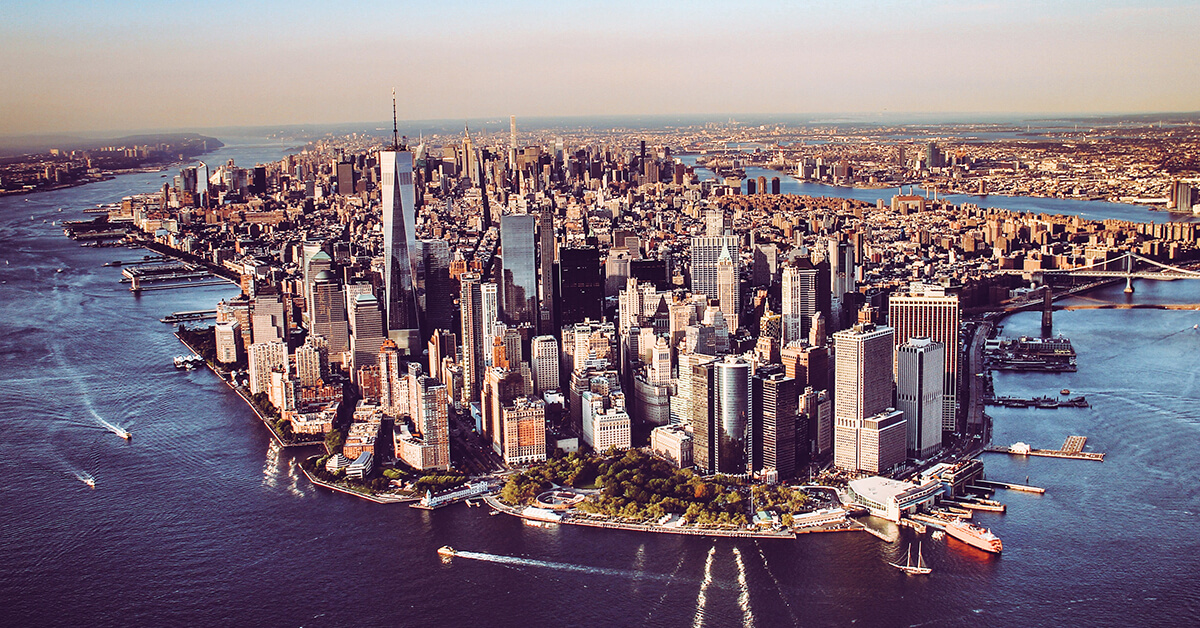
March 15, 2021
NBAA has joined with five general aviation associations in opposition to two New York City bills that would severely restrict helicopter operations in the city.
Following a hearing before the City Council Committee on Economic Development, the general aviation advocacy groups sent a letter setting out their opposition to the two bills, while also expressing support for a third proposal that would promote the use of electric rotorcraft by New York City government officials.
Download the coalition letter. (PDF)
“Helicopters play a critical role in business aviation, and NBAA has long fought to protect access for all operators,” said Christa Lucas, NBAA senior vice president of government affairs. “We also strongly support innovation and technology developments in our industry.”
The letter emphasized that the city does not have jurisdiction to impose the restrictions set forth in the two bills. The proposals are preempted by federal law, with only the FAA having the ability to regulate aviation over the city, and the terms of access to public heliports.
Bill No. 2026 would prohibit operations at those heliports by most charter (Part 135) operations if the helicopters are certified under Stage 1 or Stage 2 noise standards. Military and police operations – as well as selective charter operations, such as news reporting and medevac – would be exempt.
Tom McCormick, a Part 91 helicopter pilot and chairman of the Eastern Region Helicopter Council (ERHC), explained that one flaw in the bill is that “very few helicopters are actually certified under Stage 3, however a number of Stage 2-rated helicopters flying today are just as quiet, and could meet Stage 3 noise certification requirements.”
Bill No. 2067 would require the operators of the city’s heliports to collect documentation from every helicopter that takes off or lands at its facility, including its airworthiness certificate, registration, inspection report, the route flown to arrive at the landing site and the planned route of departure. The FAA already closely regulates helicopter operations and prohibits municipalities from burdening them with documentation or other requirements that are additional to – or even merely duplicative of – federal standards.
The coalition letter clarifies that Congress passed legislation specifically intended to thwart exactly this sort of local interference with operations already regulated at the federal level by the FAA.
“In 1990, Congress adopted the Airport Noise and Capacity Act … with the specific purpose of preventing the adoption of local restrictions – including but not limited to noise-based restrictions – on aircraft operations at public airports,” the letter states. “The signatories respectfully posit that bills No. 2026 and No. 2067 would impose noise and access restrictions in a manner that is flatly inconsistent with ANCA.”
McCormick estimated that passing these two bills could affect as many as 80% of NYC helicopter operations based on pre-COVID numbers, further hobbling the local economy at a time when economic activity, like moving people and commerce and preserving small businesses, should be encouraged.
“I look forward to working with the council and industry to bring cleaner, quieter aircraft to the market. New York has supported its heliports since 1956,” said McCormick, who grew up in the New York area and spent much of his flying career there. “I want to see NYC maintain its economic advantage. You can’t do that without aviation.”
View the recording of the hearing.
Read the text of NYC Bill 2026. (PDF)


 International Business Aviation Council Ltd.
International Business Aviation Council Ltd.